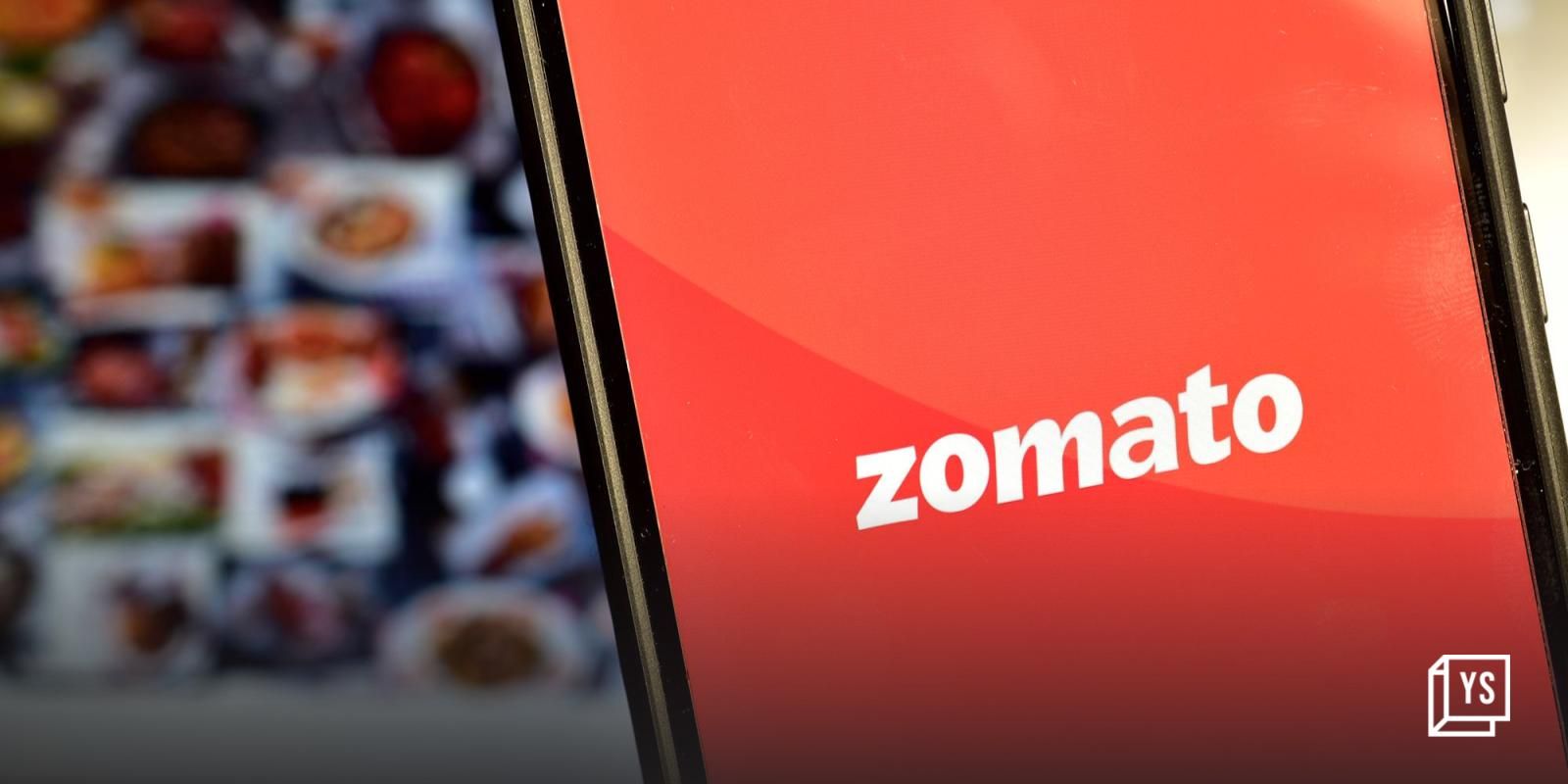Ashish Kashyap, Ibibo: "Our vision is to have the largest share of trusted B2C transactions in the internet."

Ashish Kashyap's story is based on a pattern that we have seen countless times globally and one that we are increasingly familiar with, here in India - the breed of the 'intrapreneur', having launched and grown products for large firms, turning entrepreneur.Ashish launched the now-wildly-popular Ibibo, back in January 2007. Prior to his current position as founder & CEO of Ibibo, Ashish set up and launched Google India's domestic operations as their Country Head, Indian Sales and Operations. Before joining Google India, Ashish was the General Manager, E-Commerce at Indiatimes.com, wherein he built and architected a host of innovative applications for the portal ranging from 'online auctions', travel & shopping. Ashish holds an Economics (Honors) degree from University Of Delhi and a diploma in International Masters in Practicing Management (IMPM) from Insead, Fontainebleau, France.
In an exclusive chat with YourStory.in, Ashish talked about gaming, travel e-commerce, payment gateways, transaction density on mobile devices and much, much more. Given below are the excerpts:
You've worked, at senior positions, for a number of large media companies. What led you towards entrepreneurship?
I like creating things from the scratch. I like to create new products, applications and platforms for customers. Even though I was working in a large media conglomerate like the Times Group, I had created a very entrepreneurial environment. I launched various e-commerce applications and businesses and most of them were first of their kind in the industry. Personally, that gave me huge insights into how to get going in a large entrepreneurial setup.
Even at Google, I set up the entire operations in India from scratch. So, I had essentially spent my entire life, creating products and building businesses. I realised that I enjoyed that and led to me founding the Ibibo group in 2007.
What are your thoughts about the evolution of the digital media ecosystem in India over the last decade?
So, in essence, all ecosystems are marketplaces. And the key constituent of this ecosystem is talent. One of the big changes that happened in the last few years is the quality of talent and the emergence of a large number of people moving from their jobs towards entrepreneurial journeys. When this particular evolution happens, which is that the quality of talent improves, the quality of engineering talent improves, people thinking about applications and value propositions for customers gives birth to a vast number of digital assets in the market. And usually, these digital assets are solving one problem or the other.
As large numbers of websites and mobile applications get created, it moves more customers. A few years ago, the significant digital assets were Google, Yahoo! and Facebook. I think the significant change that has happened in the internet space is more entrepreneurial people coming in and starting businesses solving unique problems. The InMobi ad network is an example. Sites like redBus and Travelyaari are examples of that. The emergence of interesting travel platforms like GoIbibo, MakeMyTrip are other examples. Even comparision travel platforms like Ixigo would be an example of new unique value being created on the internet by smart talent. And all these then pull more customers.
In fact, the barrage of e-commerce sites ranging from FashionAndYou to Mydala also act as examples illustrating that trend. And Flipkart’s emergence is an absolute testament to this trend. As the number of sites, applications and e-commerce platforms, created by local entrepreneurs and local talent, increases, it increases the customer side of the market which increases the market size. This is the crux of the evolution of the digital economy. Content creators need content consumers, at the end of the day.
Tell us about ibibo’s uncoventional name. Why and how did it come up?
The name 'ibibo' came up because, when we were setting up this company, we believed that the big shift happening in the internet world was that power was moving into the hands of the customers. If you look at the world before 2005, the way internet was being used was that there was a company which published content and then there were customers who consumed content. The big change that has happened after 2005 was that the power of creating content and creating applications went into the hands of the consumers. That is when we articulated the “i build” part. And the other big change which happened post 2005 was that people were now interconnected on the internet. That is when the whole thing of “i bond” came up. “i build" and "i bond" led to ibibo. That is the core value of our company and it is reflected in whatever we do.
You have an e-commerce company, a travel site, a gaming platform and a payment gateway. So, what really is the vision for ibibo?
At ibibo, we want to work with our customers to conduct trusted transactions. That is our core focus. We are actually a transaction platform between suppliers and buyers. The way we look at our travel business is that any airline can come and publish their services, and show their inventories to customers. If you look at our gaming business, we have the same philosophy. We have game creators who come and publish their games, and there are gamers who play games and they pay the developers by either downloading or buying virtual goods.
If you look at our marketplace business, we enable merchants to get listed and published, and enable suppliers to come and buy goods from them. And finally, if you look at our payments business payu.in, it works pretty much the same way in which e-commerce merchants are able to integrate with banks and other payment gateways.
So, that is the core philosophy across these businesses - enabling trusted transactions. If you come into our office, you will see that our slogan is “we love transactions." Our vision is to have the largest share of trusted transactions in the market. We want to have a large share of B2C transactions happening in the internet and that will be our area of focus.
In your view, how are Indians reacting to gaming online? Do you see many of them paying for games online?
Well, the conversation rate globally is about 5-7% and in India, it's probably half of that. I think the challenge for gaming platforms in India right now is that there are not enough game suppliers. As a result, many a times, we end up making games. But all our businesses are platform plays. For instance, we don't we fly our own aircrafts nor are we retailers. We bring two sides of the equation together and that remains the core focus for us. So, to answer your question, there are tens of thousands of people who are paying for games, but the conversions are happening at half of the global average.
What led you to start a payment gateway?
We looked at the e-commerce industry and quickly realised that the biggest pain-point for anyone starting an e-commerce company in India today lay in accepting payments online. If you are starting an e-commerce site, you should be able to get a payment solution, at an affordable cost, up and running within a timeframe of two weeks. The second big problem for anyone starting an e-commerce site is that when there are large number of payments happening, using the right kind of analytics and tools to increase the success rates becomes imperative. We have very sophisticated analytics and dashboards, so that they can even convert the bounced transactions. We looked at these two problems in the market and went about trying to solve it and in the process, do to better than anyone else. As a result, we now have 100s of e-commerce sites using PayU. In fact, PayU is the fastest growing payment gateway in India.
Are you looking at any mergers and/or acquisitions any time soon?
We have seen tremendous growth in the travel space. We have outstripped the growth of the market and other incumbent players by 4 times or 5 times. We had triple digit growth figures in the last two years, which is absolutely massive. Crudely put, we came in from nowhere and captured a significant share of the travel market. The core values of GoIbibo is speed, simplicity and excellent customer service. Perhaps, it is because of these simple values that we have been able to garner this sort of market share in such a short period of time. We operate in the business to consumer segment where we completely focus on the internet. There are other channels like business to business etc. which we find interesting and it is in these areas that we will soon be announcing certain investments.
When you started GoIbibo, MakeMyTrip and ClearTrip were already doing quite well. Why did you think of starting yet another travel e-commerce site?
MakeMyTrip has been in the market for the last 13 years and ClearTrip has been around for over 7 years. We started our business two and half years ago. The reason we did it was that travel, as a sector, has scale. It is a 6 -7 billion dollar market. We realized that the incumbents hadn’t yet taken all the market and that there were gaps available among the incumbents upon which we could capitalize. But the clincher was the fact that we already had large traffic. We realised that we could utilize it at zero cost and help travel as a services businesses. Also, another reason was that domestically I was the first person in 2002 to sell an air ticket online. I understood the nuances of how travel happens on the internet very well. Based on all these factors, we launched the business in a very low cost manner and then we were able to constantly improvise the product and service, which helped us garner market share.
As someone who has worked with corporates in entrepreneurial setups before venturing out on your own, how would you trace the evolution of a company from the starting point?
I tend to look at the evolution of a company in four phases. Phase 1 is about getting things up and running, which means putting a product out there. A lot of companies fail to reach even this phase. Most of the companies are not able to reach their go-to market phase. Maybe it was because you were not fast enough or perhaps, not flexible enough. Your people may have gotten tired and quit. Co-founders may have quit. That is the toughest phase to overcome as a company. The fact that no one knows you tends to hurt. During this phase, you have to keep yourself lightweight and do as much trial-and-error moves as possible. And trial-and-error type of experimentation can happen only if you are lightweight and simple. This can go on for anywhere between 3 months to 12 months. There are days when you feel that things are going great and then, there are days when you feel that everything has gone lousily.
The second phase is all about getting consumers to use and repeat the use of your products. You need consumers to validate whether your product is good or bad, which in turn will help you define what your business model is. You have to ensure that your financial fundamentals are going right, whether it is commissions or an advertising-driven model or a listing model. This is a very important phase. If you don’t define what the fundamentals are from a financial point of view, it is likely to hurt you later. Not every company is Facebook and that means not everyone can think about the business model much later, once consumers start using the product widely. You should figure out ways to monetize your business.
The third phase is, at least in my experience, not as challenging as the other two. It is about massive scale. Even though there are lots of challenges from a technology scalability point of view, from a resource scalability point of view, etc, that is the third piece in the evolution of a business - becoming massive.
Once the company become massive, the fourth phase is about reinvention and the problem is that reinvention needs to be happening constantly and it has to happen in faster cycles.
The narrative of mobile phone use in India continues to dominate how our country is viewed, outside in. So, do you really see people transacting via mobile?
It is definitely beginning to happen. For instance, you can look at the case of entertainment and gaming kind of products. Those are the fastest ones, in terms of adoption on the mobile. But products like travel, etc. which used to show single digit percentages of overall transactions, are now double digit percentages on the mobile. We definitely believe that the mobile phone will be the primary screen in the next five years, at least.
What advice would you give to young entrepreneurs and people looking to venture out on their own?
There are only three things, really.
1) Don’t be scared of failing. But fail at low cost and also, fail fast.
2) When you are launching a product, ask yourself how you can solve the problem better or differently. This is a very important point. Even if you do a me-too kind of product, you need to know how you are able to solve a customer’s problem differently and better.
3) And finally, don’t be scared of changing.
Website: http://www.ibibo.com/aboutus/main.php
We at YourStory thank Ashish for sharing with us his valuable insights and pragmatic advice. We'd love to know what you thought of this story. Do feel free to leave a comment.











